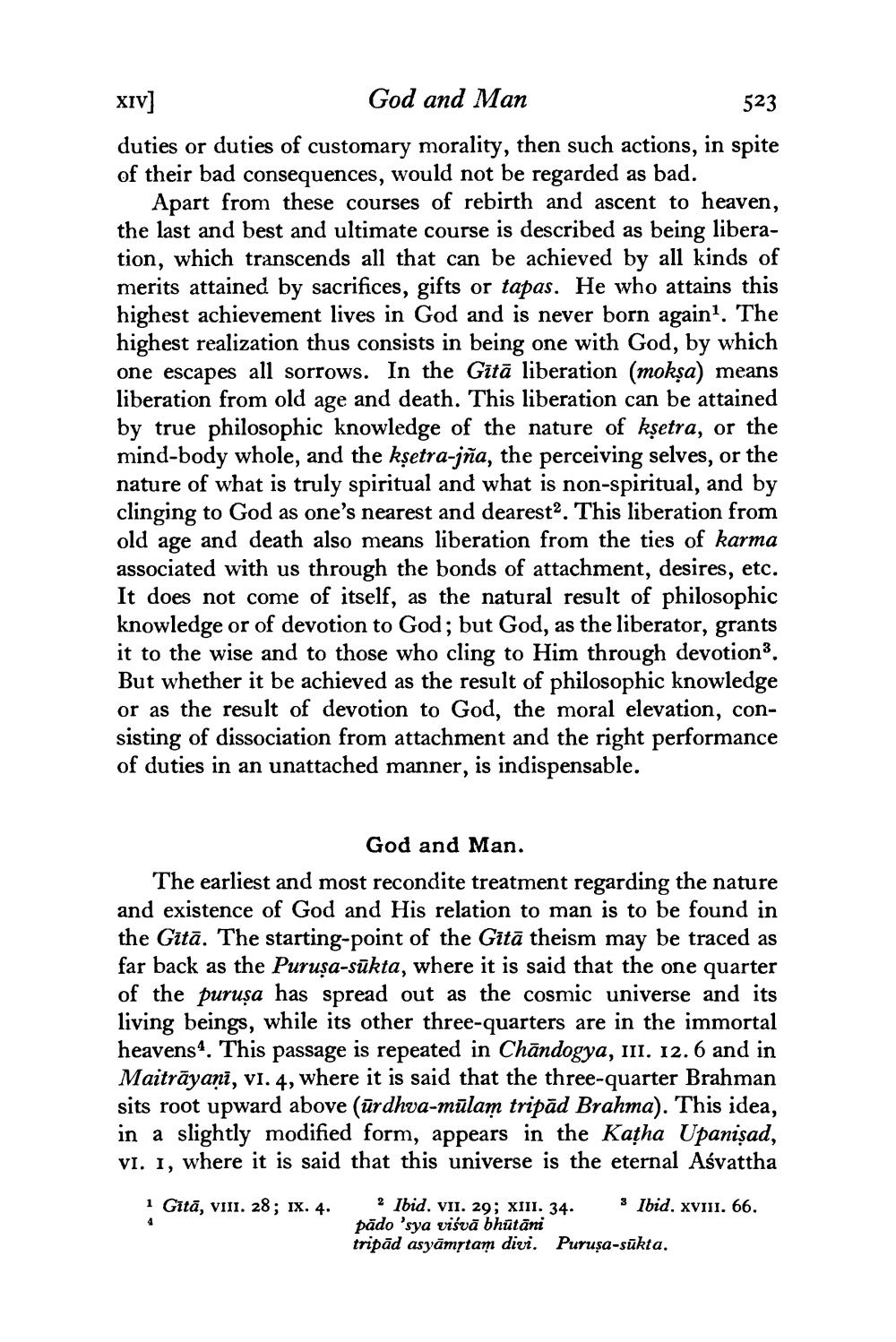________________
XIV]
God and Man
523
duties or duties of customary morality, then such actions, in spite of their bad consequences, would not be regarded as bad.
Apart from these courses of rebirth and ascent to heaven, the last and best and ultimate course is described as being liberation, which transcends all that can be achieved by all kinds of merits attained by sacrifices, gifts or tapas. He who attains this highest achievement lives in God and is never born again1. The highest realization thus consists in being one with God, by which one escapes all sorrows. In the Gitā liberation (mokṣa) means liberation from old age and death. This liberation can be attained by true philosophic knowledge of the nature of kṣetra, or the mind-body whole, and the kṣetra-jña, the perceiving selves, or the nature of what is truly spiritual and what is non-spiritual, and by clinging to God as one's nearest and dearest2. This liberation from old age and death also means liberation from the ties of karma associated with us through the bonds of attachment, desires, etc. It does not come of itself, as the natural result of philosophic knowledge or of devotion to God; but God, as the liberator, grants it to the wise and to those who cling to Him through devotion3. But whether it be achieved as the result of philosophic knowledge or as the result of devotion to God, the moral elevation, consisting of dissociation from attachment and the right performance of duties in an unattached manner, is indispensable.
God and Man.
The earliest and most recondite treatment regarding the nature and existence of God and His relation to man is to be found in the Gita. The starting-point of the Gita theism may be traced as far back as the Puruṣa-sūkta, where it is said that the one quarter of the puruşa has spread out as the cosmic universe and its living beings, while its other three-quarters are in the immortal heavens. This passage is repeated in Chandogya, III. 12. 6 and in Maitrāyaṇī, vI. 4, where it is said that the three-quarter Brahman sits root upward above (ūrdhva-mūlam tripād Brahma). This idea, in a slightly modified form, appears in the Katha Upanisad, VI. I, where it is said that this universe is the eternal Aśvattha
1 Gitā, VIII. 28; IX. 4.
3 Ibid. XVIII. 66.
2 Ibid. VII. 29; XIII. 34. pado 'sya viśvā bhūtāni tripād asyāmṛtam divi. Purușa-sūkta.




